A Brief Look at the History of Christianity
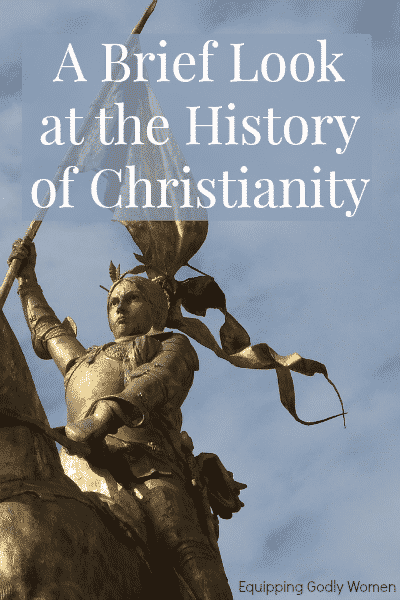
This post is post 6 in a series entitled Letting God Lead: My Journey Through Protestant and Catholic Beliefs. While you certainly can read this post by itself, I highly encourage you to check out the rest of the series as well. Find more about this series and a list of all of posts here. *This post contains affiliate links.
To get a full understanding of the whats and hows and whys of the Christian church today, you need to know a little about church history. Not just because it’s important to know, but because so many of the major events that have significantly shaped church doctrine and history throughout the years have been the direct result of other events that happened before them.
Before I begin, I think it is important to say–in no way, shape or form am I even trying to give a complete report. I’m writing a blog post, not a book. Therefore, I am forced to choose only the information I feel is most pertinent while trying to be as unbiased and educated as possible. Feel free to add more in the comments!
The Beginning of Christianity
While the overarching story of Christianity began with the creation of the Universe, the story of Christianity as a religion essentially began with the birth of Jesus Christ around 4 B.C.
Prior to Jesus’s birth, life and ministry, the only way God’s people (the Jews) could have any hope of knowing God and going to Heaven was to keep the Law of Moses. For Jewish people, the law was their life, and they followed their laws like their salvation depended on it (because it did). Non-Jewish people had no hope of Heaven, according to Jewish belief.
Jesus was born a Jew and was raised in Jewish culture. All of the first Christians were as well. For the first few years, all Christians were Jews, but not all Jews were Christians. Instead, many, many Jewish people HATED Christians, because they saw the Christians as blaspheming against God.
At very first, Christians still worshiped at the Jewish temples. After Jesus’s death, resurrection and ascension, however, his followers (who now began to include non-Jewish people as well) began meeting on their own. A separate religion had been born.

The Spread of Christianity
News of Jesus’s death, resurrection and ascension quickly spread through the area and then out to cities farther and farther away as the apostles went out to evangelize. Keeping the message consistent was likely pretty easy in Jerusalem, where there were several witnesses, but as the Good News spread farther and farther away, it became more and more difficult to keep the message consistent. This is why Paul wrote many letters to the churches in far off cities–to correct wrong beliefs that had crept up in his absence.
The first Christians didn’t all believe the exact same things. Some Christians practiced infant baptism while others waited, for example. Still, people seemed to get along well enough for the most part. They were all of the same religion, even if they didn’t exactly agree on all of the specifics.
The Rise of Heretics
It wasn’t long, however, until some people began making claims that weren’t simply “off a little” — they were downright heretical. For example, the Gnostics rejected all things physical and claimed that Jesus was divine but not human. Arius claimed that Jesus was not eternal God, but was the first being God created. Jovinian objected to the idea that Mary was a virgin.
In order to combat these heresies and others, the Church had to take an official stand and formally state their beliefs. These declarations were not new information; they were simply affirming and clarifying what the church had always held to be true so that believers wouldn’t unknowingly succumb to heretical teachings. The Catholic church still does the same thing today.
One such clarification was the Nicene Creed, which was written at the Council of Nicea in 325 and which Catholics still recite at Mass today. It states the basic truths that all Christians believed then and that all Catholics (should) still believe today.
Nicene Creed
I believe in one God,
the Father almighty,
maker of heaven and earth,
of all things visible and invisible.I believe in one Lord Jesus Christ,
the Only Begotten Son of God,
born of the Father before all ages.
God from God, Light from Light,
true God from true God,
begotten, not made, consubstantial with the Father;
through him all things were made.
For us men and for our salvation
he came down from heaven,
and by the Holy Spirit was incarnate of the Virgin Mary,
and became man.
For our sake he was crucified under Pontius Pilate,
he suffered death and was buried,
and rose again on the third day
in accordance with the Scriptures.
He ascended into heaven
and is seated at the right hand of the Father.
He will come again in glory
to judge the living and the dead
and his kingdom will have no end.I believe in the Holy Spirit, the Lord, the giver of life,
who proceeds from the Father and the Son,
who with the Father and the Son is adored and glorified,
who has spoken through the prophets.I believe in one, holy, catholic and apostolic Church.
I confess one Baptism for the forgiveness of sins
and I look forward to the resurrection of the dead
and the life of the world to come. Amen.

Determining a Canon
In addition to the heresies, new writings (such as the Gospel of Thomas) began to circulate that claimed to be inspired that really were not. As a result, church leaders met to decide and make an official statement about which books were in fact inspired. They did not MAKE them inspired–they always were–the church simply made an official declaration.
While opinions varied somewhat on which books should be included, an official list was written up in 367, then approved by the Pope and formally approved by the church in 382. This list contained the Bible pretty much exactly as we have it today, although modern Protestant Bibles do not contain the Apocrypha/Deuterocanonical books–7 books of the Old Testament that are still in dispute today.
The church didn’t decide which books to include willy-nilly of course. With prayer and careful debate, they compared the proposed books against certain criteria, including:
- The books had to be written by an apostle or a close follower of an apostle.
- The books had to be consistent with the rest of Scripture.
- The books had to be consistent with what church Tradition affirmed to be true. (Remember: they didn’t have a Bible yet, so church Tradition was the ultimate measuring stick up until this point.)
- The books had to already have gained widespread use and acceptance.
(On a side note, it is important to keep in mind:
- This was before the printing press, so books had to be transcribed by hand onto scrolls.
- As a result, these scrolls were very expensive, especially if you wanted a complete set.
- As a result of that, not every church had access to all of the books in the Bible.
- Plus, the scrolls were not always written in a language that the people even understood.
- And even if they were, most people couldn’t read. They had to depend on the church to read the word to them and translate it for them.)
- SO… even once people had the Bible, they didn’t really *have* the Bible. They still depended on the church as their source of truth and guidance.
But at last, the church finally had an official list of inspired books of the Bible. Or so they thought.
Fighting, Disagreements and Fractions
Even with an official canon, Christians still had a hard time agreeing on things. Christians had huge disagreements over issues such as when to celebrate Easter, whether or not the Bible should be translated into a language that the people could understand and whether or not the Pope of the Roman Catholic Church has authority over all of the other popes.
There were lots of good things that happened during this time, but there were plenty of bad things that happened too. There was idol worship. Priests were selling indulgences. People were raping and killing in the name of Christianity. Pagan beliefs and practices were intermingling in as more people “converted.” Faith and politics mixed in an ugly way. Most Christians were doing their best, I’m sure, but as a whole, the church was a mess.
And then along came Martin Luther.
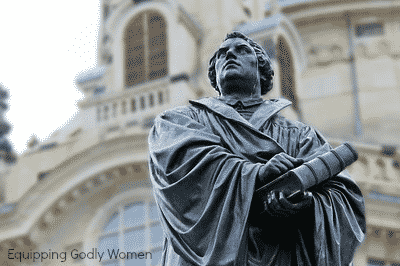
Martin Luther and the Protestant Reformation
Today, many Protestants hail Martin Luther as a hero. He stood up to the wrongdoings of the church and set people back on the right path! However, there is a lot about Martin Luther’s life that most people simply don’t know and would be shocked to learn.
Born to very strict, possibly even abusive parents, Martin Luther lived in great fear of God’s punishment. He saw himself as worthless and completely incapable of pleasing God, though he did everything he could to gain God’s approval, including becoming a monk and a Bible teacher. But he never felt like enough, and this was very burdensome to him.
While teaching the Bible, Luther came across verses that said that man was saved by faith, and suddenly a huge weight was lifted off of his shoulders. He didn’t have to WORK for his salvation–God would DECLARE him righteous when he responded in faith! What a relief! (And it should be noted–this is exactly what the Catholic church had been teaching all along.) Except Luther took it one step farther and said that works were not necessary at all–just faith ALONE–a belief that is now widely held, but that isn’t actually Scriptural at all.
As a monk, Martin Luther saw firsthand how corrupt the Roman Catholic Church had become. Priests were selling indulgences. People didn’t take the body and the blood seriously. This upset Luther greatly (as it should), and he set out to do something about it.
I don’t believe Luther set out to start a new religion when he nailed his 95 Theses to the church door. I believe he was just calling for some much-needed church reform. But what he got was a lot more than he bargained for.
- The church split from one large and diverse body to tens of thousands of small denominations. (To be fair, this wasn’t the first split, but it was the largest.)
- Without the church as the authority, people could read the Bible for themselves. Now, people can claim the Bible says whatever they want it to say.
- With faith ALONE being necessary for salvation, people didn’t have to work out their salvation with fear and trembling anymore. Instead, they could do whatever they wanted to and skip the sacraments altogether.
- By throwing out the Apocrypha/Deuterocanonical books, Luther also effectively got rid of several major tenants of Catholicism.
Of course, you don’t have to believe all of these things to be Protestant. As a Protestant, you can believe whatever you want. You’re the boss! 😉
Here are a few other interesting facts you probably didn’t know about Martin Luther:
- Martin Luther believed in the real presence of Jesus in the Eucharist.
- He didn’t just want to remove the Apocrypha/Deuterocanonical books–he wanted to remove James, Hebrew, Jude and Revelations as well.
- The Apocrypha/Deuterocanonical books were included in the first version of the King James bible and were included in an appendix until 1827.
- Luther believed that Jesus committed adultery with the woman at the well and with Mary Magdalen.
- He HATED Jews. So much that Hitler considered him an asset.
Just some informative food for thought 🙂
So, Are the Apocryphal Books Inspired?
As I set out to research this post, this was the question I most wanted to answer. Unfortunately, despite reading tons and tons of great (and not so great) information on the subject, I still find the results very inconclusive.
The problem isn’t a lack of a strong argument (both sides make some good points), but that the information in the articles I read was so directly opposed to the information in the other articles that I read that it was very difficult to know who to trust. And since I live today and not 1,700 years ago, I can’t exactly go back and fact check. Frustrating.
Sooo… the best I can do is offer up a summary of some of the arguments I’ve read, and you’ll just have to decide for yourself.
**Many of these are arguments/counter-arguments. Read the side with the **s first if the line has them.
| Arguments for the Apocrypha | Arguments Against the Apocrypha |
| **Jesus and his disciples all quoted from the Septuagint, which contained the Apocrypha. | Just because the extra books circulated with the inspired books doesn’t mean Jesus and the disciples saw them as all inspired. |
| Jesus and disciples do reference the Apocrypha, and anyways, even if they didn’t, there are other OT books that also aren’t referenced, so it’s not a requirement. | **Jesus and disciples do not reference the Apocrypha. |
| The books were found with the Dead Sea Scrolls. | The books were not found with the Dead Sea Scrolls. |
| 1. The Jews didn’t accept the extra books—but they didn’t accept the New Testament either. 2. Their opinion doesn’t matter because they aren’t Christian. 3. Jesus transferred authority to church. 4. Some Jews do accept them. | **The Jews didn’t accept the Apocrypha, and they had the authority to declare the Old Testament canon. |
| 1. The Jews didn’t declare an official, closed canon. 2. The Council of Jamnia may have never happened. 3. The Jews there were VERY anti-Christian. | **The Jews declared the OT canon at the Council of Jamnia in AD 90 or between 200 to 300 BC, depending on the source. |
| The early church fathers all supported the Catholic Canon. | The early church fathers did not support the Catholic canon. |
| Just because they questioned the books doesn’t mean they weren’t inspired. The fathers were being careful. | **The early church fathers questioned the Catholic canon. |
| The books had always been listed as part of the Catholic canon. The Catholics weren’t adding, simply reaffirming. Protestants took them out. | **The Catholic church added the books in the 16th century at the Council of Trent. |
| When reading the Apocrypha, you have to read for the intended purpose. The writers were seeking to tell stories, not write history books. | **The Apocryphal books are full of errors. |
| Paul claims portions of his letters are uninspired. God can work through people without them knowing it. | **The books themselves claim to be uninspired. |
| The books are Scriptural, so therefore, so are the concepts. They don’t have to be listed in multiple places to be true. | **The books contain unscriptural concepts, such as praying to saints and purgatory. |
| No response. | In Matthew 23:35, Jesus mentions “from Abel to Zechariah” — the first and last martyrs in the Jewish OT canon, this shows Jesus did not consider the Apocrypha to be Scripture. |
| Luther threw out the extra books to support his misguided views. | The Catholic Church includes the books to support their misguided views. |
| **The number “73” is associated with holiness and perfection, while “66” is only one number away from the Devil’s number. | That’s just a coincidence, and reaching quite a bit. |
Hopefully you can see what the problem was! Not a lack of information, but apparently a lack of trustworthy information.
Why Does it Matter?
As we’ll see over the next couple of weeks, many major Catholic doctrines, including Purgatory and praying to Saints, are based either entirely or in part on verses found in the Apocrypha/Deuterocanonical books. Without these books, the doctrines have no Scriptural basis. Not that the church Needs Scripture, but still, it’s a great defense.
I’m sorry to report I have yet to be able to come up with a conclusion. What about you? As always, leave me a comment (or a book!) so we can sort through the questions and the issues!
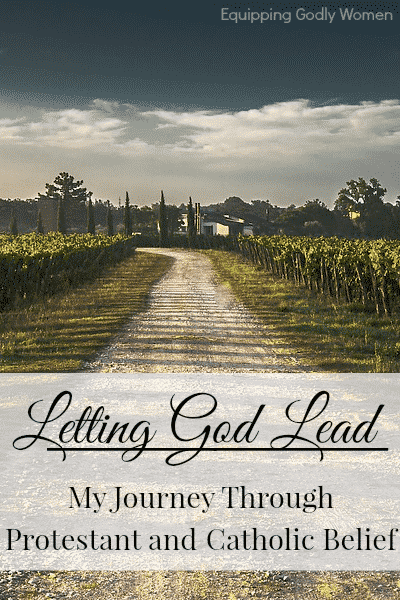
Enjoyed this post? Don’t miss the rest of the posts in the series!
The Day I Realized My Religion Got it Wrong
10 Common Catholic Church Myths that Critics Believe
Is the Eucharist Really Just a Symbol?
Who has the Ultimate Authority? A Biblical Look at Sola Scriptura
A Brief Look at the History of Christianity
What All Christians Should Know About Priests, the Pope and Confession
What Do Catholics Really Believe About Mary, Saints and Statues?
Infant Baptism or Believer’s Baptism? Which is Correct?
What is Purgatory? What are Indulgences?
Why Do Catholics….? Honest Answers to Your Burning Questions
Protestant and Catholic Beliefs Series Conclusion
Resources and Further Reading
I’m not asking you to believe because I say so. Please DON’T take my word for it! The purpose of this series is only to share what I’ve learned on my journey in order to inspire you to begin a journey of your own. Here are a few helpful resources to get you started.
*This post contains affiliate links, which means if you make a purchase, I may make a small commission at no additional cost to you. Thank you!
Catechism of the Catholic Church
Christian History Made Easy by Timothy Paul Jones, PhD (This is a REALLY good book. Very informative, easy to read, and generally unbiased.)
The Catholic Church: What Everyone Needs to Know by John L. Allen
A Concise History of the Catholic Church by Thomas Bokenkotter
Surprised by Truth: 11 Converts Give Biblical and Historical Reasons for Becoming Catholic by Patrick Madrid
http://www.bible.ca/catholic-apocrypha.htm
http://www.bible-researcher.com/
http://catholicdefense.blogspot.com/2011/07/can-protestants-rely-upon-council-of.html
http://catholicdefense.blogspot.com/2009/10/protestantism-and-early-church-fathers.html
http://www.fisheaters.com/septuagint.html
http://www.gotquestions.org/canonicity-scriptural.html
http://jimmyakin.com/deuterocanonical-references-in-the-new-testament
http://www.justforcatholics.org/a63.htm
http://www.ncregister.com/blog/mark-shea/a-reader-puzzles-about-the-deuterocanon

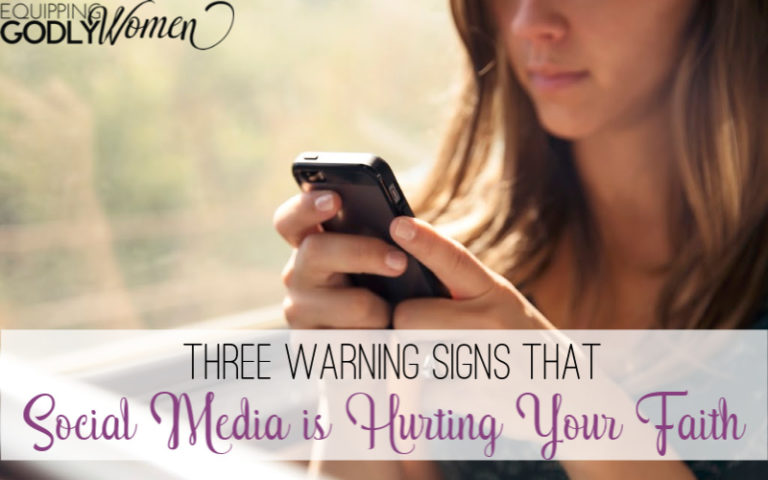

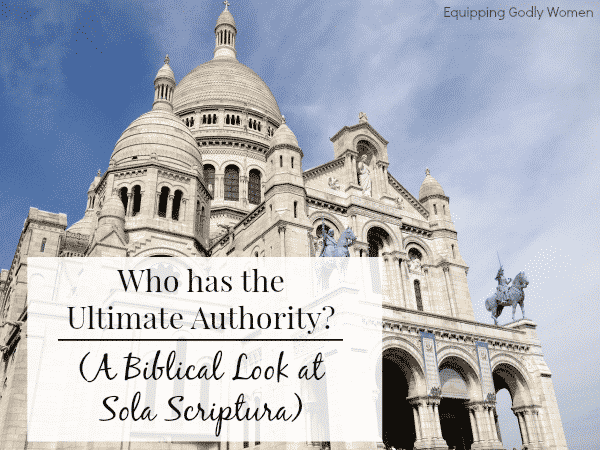



This is amazing!! i just love reading…when I have told other Protestants that Luther believed in the real presence most are shocked! I also heard he believed in the Assumption of Mary and even had a statue of her at his grave for a time, before it was removed.
Thanks Patty 🙂 I didn’t know those last two!
The statue of Mary was moved, but the plaque showing her Assumption and coronation is still right next to his grave.
Thank you for all your HARD work! I am printing this off for required reading for my high school homeschool…Will make for a great family discussion. You are making a difference in so many people’s life…stay encouraged in the midst of all the deep and time consuming work! Sending MANY blessings your way!
lol. I suddenly feel inclined to make a timeline of my blogging journey. “And THIS is the day my article became required reading…” lol. It’s quite basic, but I think it gives a good overview. If you want something in-depth but really, really interesting, Christian History Made Easy is awesome. I learned a TON.
If you haven’t seen them already, the following resources may be of some assistance:
http://jimmyakin.com/deuterocanonical-references-in-the-new-testament
http://www.ncregister.com/blog/mark-shea/a-reader-puzzles-about-the-deuterocanon
Great articles! I read them and added them to the resources list at the end. Unfortunately, however, at this point it isn’t a matter of getting more information, but figuring out who is telling the truth when both sides are saying opposite things! This is definitely one I’m going to have to mull over for quite some time.
Studying church history was a major reason my husband and I converted to the Catholic church.
It’s definitely changed my mind on quite a few things!
Very interesting article, and I thought the table comparing Protestant/Catholic beliefs on the Apocrypha was helpful indeed. I’m glad you’re weighing the pros/cons of both sides. One note I’d like to make for now though. Although I believe you were joking, you stated at one point in the article that a Protestant can believe whatever he or she wants. I understand the remark, but it is important to note that, if we’re talking about traditional, Sola Scriptura-type Protestantism, Protestants like me absolutely cannot believe whatever we want. We are answerable to God for our beliefs, and we have a doctrinal standard (the Bible) to use as our point of reference for what is valid and is invalid spiritually. True, as both Protestants and Catholics like to note, the Bible is at times difficult to understand, but it is a means of God’s revelation to humans (and thus is meant to be understood to a certain extent by humankind). As a fallible human, I will never perfectly interpret every part, but I am required to follow what I do know and I can use the wisdom of church history, church leaders, and church councils to aid in that quest. I understand the Catholic objection that Sola Scriptura seems to leave the Protestant with few authorities with which to interpret the difficult parts of the Bible other than him or herself, but actually, this isn’t greatly different than the position of any other human being. Even you, Brittany, should you join the Catholic Church, will do so not after simply having someone tell you what to believe, but after carefully evaluating the evidence to the best of your ability and evaluating the qualifications of those instructing you, and, hopefully under the guidance of God, deciding what you believe to be true. Providentially for both of us, we can and should look to church history, scholars and councils for help; traditional Protestant churches just don’t typically regard the current, extra-biblical record from those sources as being supremely authoritative over the Bible itself. Hence, even Martin Luther is not regarded as infallible and inerrant, and where he contradicted Scripture, we should disagree with him if we detect the error. In closing though, all of this is not to say that we don’t have any form of church government or creeds in the Protestant world. That may be true of some non-denominational Protestants, but in theologically conservative Protestant denominations, extreme heresy or immorality can and has cost people their positions within their churches. In other words, we can’t just show up on any given Sunday and preach or do whatever we want. I don’t say all of this in order to state that Protestantism is the way to go (though I believe it is), but simply to clarify that Protestant thought is not quite the libertine, free-for-all many Catholics seem to assume it to be. Disagreements within Protestantism have led to many denominations, but those of us who adhere to Sola Scriptura hold the Scripture to be our standard and the framework within which to iron out our disagreements. We therefore do have a standard; our interpretation of that standard just happens to be one with which Catholics disagree.
Yes, don’t worry, I was joking! At least mostly 🙂 I know people believe what they do for good reason. BUT if someone wanted to just pick and choose whatever they wanted, no one is going to come kick them out of being a Protestant. There isn’t one set of overarching rules people have to follow. It’s quite varied.
The big difference with any bible-believing group of believers is that, the scripture is used to correct and rebuke, admonish and exhort in all love and patience, so, really, there should be no ‘kicking out’ of a true Church of Christ, unless a person has sinned and refuses to repent. I think that is the only scriptural reason for putting someone out of a congregation of believers. 2 Timothy 4:2
Again, this was another comment made in a joking sort of sense. No one is getting kicked out of a church for being wrong on something. If they were teaching heresies and refused to stop, well, then the church would have reason to in order to preserve the teachings so everyone else wasn’t led astray. But from what I’ve read, when people were excommunicated from the Catholic Church, they could still attend, they just couldn’t receive the Eucharist. I doubt it happens often without reason. 🙂
Thanks for your reply, Brittany! In hindsight, I shouldn’t have made such a long comment in reply to a sentence in your article that was largely a joke. I apologize for rambling. My main concern is that people with less experience of Protestantism than you and I have had may believe that Protestants can literally believe anything they want. It is true that there is immense variety in Christian-oriented beliefs outside of the Catholic Church (and inside too if you talk about laypeople rather than church officials), but there are certain limits to the different categories. For instance, if when discussing Protestantism we started talking about people who generally deny the Protestant canon of the Bible to be the Word of God, we would not really be talking about traditional, Sola Scriptura-style Protestants. Indeed, the entire Protestant-Catholic debate as framed on this blog would go largely out the window in that instance, as the importance of either Scripture-based arguments or church tradition would be largely dismissed by such Protestants. Second, if we started talking about people who deny the deity of Christ, we would not even be talking about Christians, much less Protestants. Again, the debate on this blog would have to be re-framed. So there are limits on what Sola Scriptura-style Protestants can pick and choose to believe if they still want to be described as Sola Scriptura-style Protestants in a technical sense. Some modern, so-called Protestants have abandoned such beliefs, and not in favor of Catholicism. Their dismissal of Scripture of any form is something that I think both you and I jointly mourn, but providentially, there are Protestant denominations that fight it, and those denominations at times place careful organizational guidelines within their church structures. In such denominations, church officials can be disciplined if they stray from denominational orthodoxy or if, as Carrie Mack notes, they engage in outright sin. I just wanted to note that there is structure within Protestantism. In closing, thanks again for letting me comment; I do think you’re a great writer and are carefully addressing many important points raised in the debate between Protestantism and Catholicism. I’ve been wordy yet again, but will try to usually be more succinct if I comment in future.
Of course! I agree on all counts. And thanks 🙂 (and yeah, I’m wordy too. so no judgement from me!)
With respect to the sola-scripture Protestants, how do you know which translation of the Bible is the proper one to believe? Words matter. For example, When I want to translate a word like ‘fat’ into another language, I have a variety of synonyms from which to choose, and each has connotations and shades of difference that may change the meaning of the sentence in significant ways. And it the various early translations reflect some political and societal concerns as well.
As a cradle Catholic, I was formed by Bible, dogma, and sacred tradition (which would include truths received from the time of Christ to the present via church history, church leaders, and church councils). Where one of the three might raise a question, either or both of the others helped to resolve it for me. I suppose people would regard me as fairly devout; I am a practicing Catholic; do regular adoration before the Blessed Sacrament; and read, teach, and write on spiritual topics. I cannot imagine eliminating the Bible from my faith practice, nor can I Imagine having only the Bible – and the same with regard to dogma and tradition. Together, the three form – and I’m speaking for myself alone – a firm foundation in which each of the three support as well as deepen the truths of the other two.
For that reason, I have always looked at the various translations, enjoying the spiritual reflections and insights offered, as helps to my faith.
Thank you so much for sharing this. I am learning so much! After reading yours and doing my own research, I am amazed at what I’m finding out about on the first church. I know it might not be obvious to you but it’s so obvious to me that it is the one true church and I’m so excited to see thi . Love this feeling! I seriously just want
to share with all of my Protestants friends! ☺ you might not know it but you’re helping my faith out so much.
Thanks so much for the encouragement, Diane! 🙂
Very thorough research, Brittany, and I can’t imagine the time you have invested in this, though it is definitely worth the effort. It is a lot like working out your salvation with fear and trembling, isn’t it? I appreciate the resources you have shared, giving your readers the opportunity to also join you in the journey of liberating our minds to the understanding and the reasoning out of faith.
Though faith, in and of itself, is not about our understanding but about a higher knowledge that we have to be changed to fully understand… and yet, Jesus said, we should have faith like children. Looking at everything through the lens of history reveals the flaws and faults of the history makers, doesn’t it? What will people see when they look at the words we write, here in our little blogging worlds? Will they see individuals wrestling with the same problems and use our arguments for things that may never be settled this side of heaven and declaring them anything but God-honoring and Biblical?
I have friends on both sides of this spectrum. One thing I know is that we have made the choice to accept and LOVE one another, because we both love God, letting the grace that comes with acceptance allow us to serve, grow, and educate one another collectively.
There is so much beauty in looking back through the History of the Church and I am profoundly grateful we have the freedom and the ability to do just that, all the while allowing God to truly lead us into the full understanding.
I do appreciate the time you have put into this, it is obvious that it is extensive, and the grace that you are answering the comments.
Blessings,
Dawn
Thanks. It HAS been time-consuming! but hopefully it’s been helpful for everyone involved. My point isn’t to cause further division, but to get people to dive in and examine their beliefs and make sure they are Biblical, which it looks like people are doing!
Brittany, you continue to do an amazing job summarizing some very big and complicated issues. You’re right that there is so much more than can be said on issues of Church history. You barely mentioned the split between East and West, which is still known as the “Great Schism.”
I know you already have a lot of information as to which Canon of Scripture is correct, but here’s one more (though it probably just repeats arguments you’ve already read): https://www.catholic.com/tract/proving-inspiration
Also, something I learned just in the last few days, is there is a quote which Paul attributes to Jesus that is found in one other place in all of Scripture: the Deuterocanonical book of Sirach. In Acts 20:35, Paul says to keep in mind the words of the “Lord Jesus who himself said, ‘It is more blessed to give than to receive.'” These words of Christ are not found in the Gospels. The only other passage similar to this is from Sirach 4:31, “Let not your hand be open to receive and clenched when it is time to give.”
Lastly, I know this is nitpicking and doesn’t really affect the main point of the blog post, but in the beginning when you talk about places of worship it’s an important distinction that there was only one Temple. This is important because to the Jews, the Temple was more important even than scripture. It was what kept them Jewish. You became a Jew, as a male, through circumcision. But you stayed a Jew through Temple worship.
The Temple was the only place where sacrifices could be offered, because it was where the presence of God dwelled (in the Holy of Holies). Trickling out from the Holy of Holies was a stream of water which was God’s Grace for all humanity (Ezekial 47).
The Temple was so important that when the Kingdom split in two after Solomon, people still journeyed south to worship there. It was so important that when Babylon conquered the southern Kingdom and took people into exile for 80 years, they actually forgot who they were as Jews. It’s why when they returned they rebuilt the walls (for protection and because people lived IN the walls in those days) and then immediately went to work rebuilding the Temple.
Synagogues were places of prayer and teaching.
I know it’s minor for the purposes of this article, but it is an important distinction because understanding Jewish history and beliefs before Christ helps us see the OT parallels which inform our beliefs as Christians, especially Catholics. If we don’t understand the importance and symbolism of the Temple to the Jews, we will never fully understand what Jesus meant when He said, “‘Destroy this Temple, and in three days I will raise it up’…But he was speaking about the temple of his body.” (John 2:19,21)
For more about The Temple, I recommend following the UMD Newman Catholic Campus Ministry podcast channel. Fr. Mike Schmitz is their pastor, and the post his homilies there. The information I gave you about the Temple came from his homily on Nov. 9, 2014 titled “The Kingdom: The Temple.”
Thanks for the extra info! There’s just so much to cover for one little blog post! lol
It may in fact be the other way around.
The Jews took 20 years to rebuild the Temple, but then they quickly built the walls after. The TEmple was so important they built it before the walls.
Hello Brittany
There are at least three important elements missing from these posts, which are vital to understanding, and, interpreting scripture correctly:
1. 2 Peter 1:19-21 reminds us that scripture is not of any “private interpretation”.
2. 1 Corinthians 2:14 “The natural person does not accept the things of the Spirit of God, for they are folly to him, and he is not able to understand them because they are spiritually discerned”.
3. John 14:16, 17; 16:13-15 One must be in a true relationship with the Lord, through re-birth, before he can receive the Holy Spirit who Christ sends to indwell all who have called on the Name of the Lord.
And we know the promise of the Holy Spirit is for all Christians, for all times: “It happened that while Apollos was at Corinth, Paul passed through the upper country and came to Ephesus, and found some disciples. He said to them, “Did you receive the Holy Spirit when you believed?” And they said to him, “No, we have not even heard whether there is a Holy Spirit.” 3 And he said, “Into what then were you baptized?” And they said, “Into John’s baptism.” “….And when Paul had laid hands upon them, the Holy Spirit came upon them….” Acts 19:1-6
Great points! Thanks for sharing!
Hi!
As a lifelong Catholic who recently discovered your blog, I am loving this series that you are doing!! Good for you for delving deep into your faith and spiritual journey… I really admire that and am thankful that you’re sharing!
xo,
Grace
Thanks, Grace! I appreciate it!